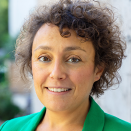Promotion of think-tank work on violent extremism in Morocco and Morocco’s regional policy in Sub-Sahara Africa as well
As part of its project on promoting think-tank work in the Middle East and North Africa, including Morocco, the MENA program of the German Council on Foreign Relations (DGAP) aims to strengthen the scholarly and technical capacities of actors from both regional and EU civil society who are engaged in research, policy analysis, and advising.
Share
The project’s objectives are:
- to analyze pressing issues and developments in selected countries and the region as a whole;
- to provide training to develop new and enhance existing policy analyses and advice capacities;
- to network with peers, political decision-makers, and senior experts to exchange experiences and increase visibility and credibility.
Morocco: Target Group and Thematic Focus
Invited to apply are mid-level professionals from Morocco and Europe who work in the field of policy analysis and advice in think tanks, academic research institutions, or comparable organizations. The subject focus should be on violent extremism in Morocco as well as Morocco’s regional policy in Sub-Sahara Africa and the MENA region. This can include, but is not limited to, questions regarding the impact of Morocco’s regional policies on the Moroccan economy, identity questions and (de-)radicalization, as well as links between smuggling, human trafficking and terrorist networks. Applicants must have a background relevant to these topics and should demonstrate in their application how participation would benefit their professional activities.
Expectations
Applicants commit to participate in two workshops, one in Berlin (December 12–15, 2018) and one in Rabat (January 31 – February 02, 2019).
Between the two workshops, each participant will write a policy paper (in English) on an issue of their choice related either to violent extremism in Morocco or Morocco’s regional policy in Sub-Sahara Africa or the MENA region (approximately 17,000–20,000 characters).
Selected applicants must submit a first draft (approximately 9,000–12,000 characters) at the latest three weeks before the first workshop in Berlin.
Participants will receive guidance and feedback on their papers during the workshops and the main writing phase between mid-December 2018 and late January 2019.
The final draft must be submitted before the second workshop in Rabat, during which all papers will be presented to the group and a selection of papers will be discussed with relevant Moroccan and European decision makers and senior experts. The DGAP may publish high-quality papers online.
Travel Costs and Accommodation
The organizers cover accommodation and provide for travel subsidies based on the participants’ country of residence.
Berlin workshop: Participants travelling from Morocco may receive a subsidy of up to 450 euros; participants travelling from the EU, may receive a subsidy of up to 200 euros.
Rabat workshop: participants residing in Morocco are eligible for a subsidy of up to 50 euros; participants travelling from the EU may receive a subsidy of up to 450 euros.
Travel expenses will be reimbursed separately after each workshop.
Workshop in Berlin: December 12–15, 2018
- Two days of topic analysis and discussion with external experts and presentation of first drafts
- Two days of training on policy-paper writing and research
Workshop in Rabat: January 31–February 02, 2019
- Presentation of final papers to the group and relevant decision makers
- One day of training on policy advocacy and communication
The working language is English. Participation in both workshops and submission of a final paper are mandatory.
How to apply
Applications must include:
- completed application form
- CV (max. three pages)
- letter of motivation
Please send your application to kabis@dgap.org. An application form is available for download below this entry. Kindly note that only complete applications in English can be considered. The deadline for applications is September 25, 2018.
The project is funded by the German Federal Foreign Office

